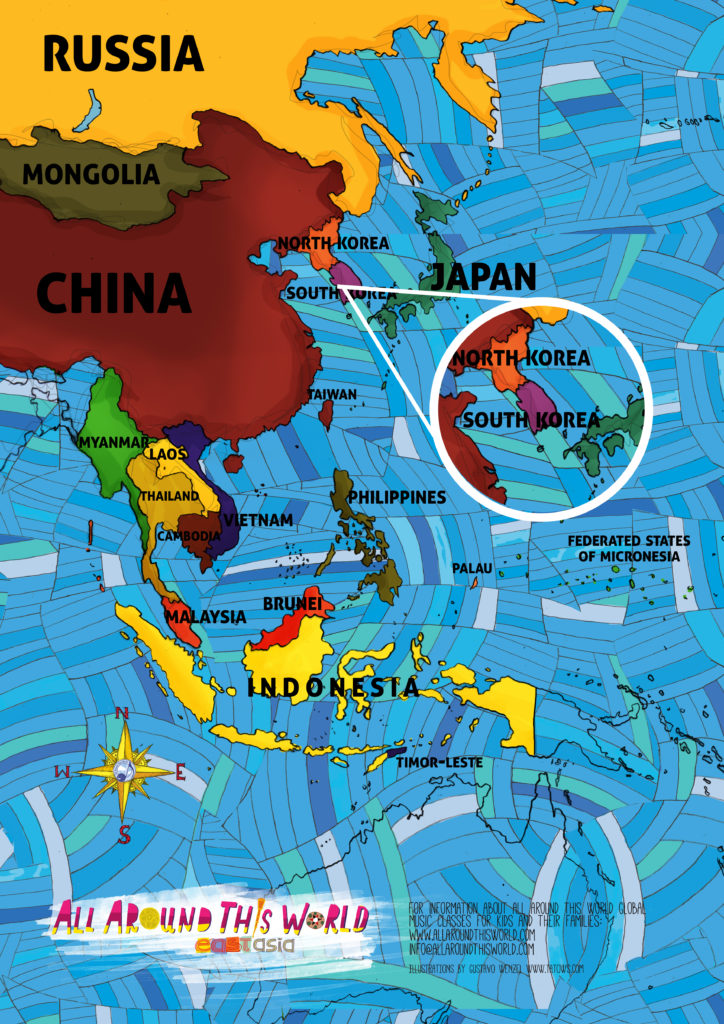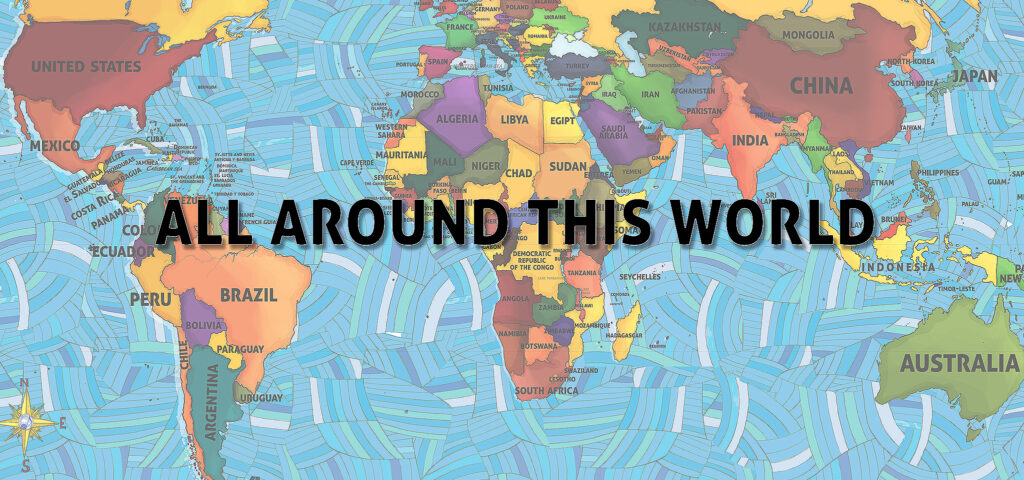This week in our online class we tried to understand two complicated Koreas. North Korea is the world’s most militantly isolated nation. From the inflated cult of personality surrounding its self-procluamed “Supreme Leader” to its government’s policy of imprisoning anyone, even foreign journalists, who dare question the omnipotence of its regime, North Korea is about as off-putting as any country could be. On the other hand, South Korea is one of the most wired, open and accessible nations in the world. In the years since splitting with the north it has raced to embrace all things that could connect it to global society, like cell phones, the internet, and shamelessly over-produced pop music. The sad fact is that for more than three thousand years, and until just about sixty years ago, these two divergent nations were one. Then came a brutal Japanese colonization culminating in a World War and a wholly unwelcome starring role in the military and ideological struggle between the Soviets, the Chinese and the United States. Since a vicious armed conflict in the early ’50s — Americans know it as The Korean War while Koreans refer to as their civil war — North has split from South with such vigor that there is literally a line between the countries that no one from either is allowed to cross. The chasm between the countries continues to widen; the civil war’s wounds are still raw.
Tag Archives | North Korea
Oh oh oh oh oh Potatoes
Since the split in 1951, North Korean music has taken a markedly different path from that of its neighbor to the south. In the Democratic People’s Republic of Korea, all music must serve the state. The state controls all media, so only it can approve music for public distribution. In 1990 Kim Jong-Il declared that all North Korean music must encourage people to respect the country and its political system. The song in this video, “Potato Pride,” a North Korean propaganda song that celebrates about the rationing of food in North Korea’s rural villages, twistedly tries to do just that.


